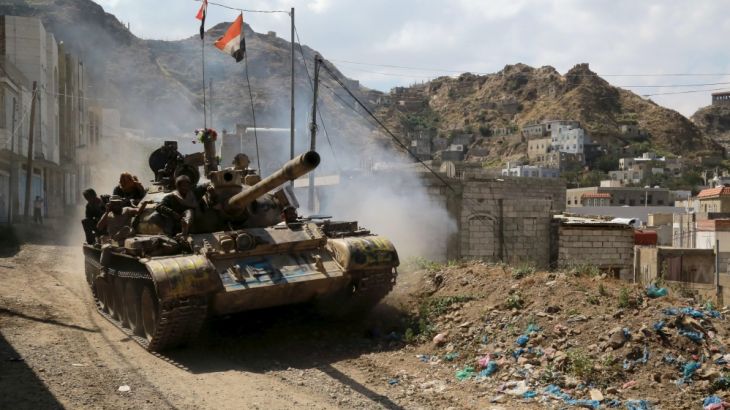Yemen peace deal elusive but rivals vow to meet again
Warring parties wrap up peace talks in Switzerland with no major breakthrough but pledge to meet again next month.

Yemen’s warring parties have wrapped up peace talks in Switzerland with no major breakthrough but vowed to meet again next month, even as fighting raged on the ground.
The six days of closed-door meetings were strained by repeated violations of a ceasefire aimed at calming tensions between pro-government forces and the Iran-backed Houthi rebels who control Yemen’s capital.
The head of the government negotiating team said the ceasefire will be extended for seven days after it officially expires on Monday.
UN special envoy Ismail Ould Cheikh Ahmed announced in Bern that a new round of talks would be held on January 14 at a location yet to be decided.
Read more: Yemeni forces seize provincial capital from Houthis
“Unfortunately there were numerous violations,” Ahmed told a news conference in the Swiss city, adding that the UN had called for “a ceasefire which is not time-bound”.
Missiles have been fired from rebel-held areas, even slamming down on the Saudi side of the border with deadly consequences, while government forces have seized several areas back from the rebels.
Ahmed still said the talks had made “serious progress”.
Both sides agreed on a negotiating framework, on setting up a joint de-escalation committee, and they worked on a package of confidence-building measures, he added.
‘Confidence-building measures’
These measures included an agreement “in principle” to release all prisoners, he said, while acknowledging that such an exchange would probably not happen before a sustainable ceasefire had been agreed on.
It's hard to be optimistic that they are any closer to reaching a political deal or settlement that will result in a long-term ceasefire.
But, Ahmed stressed: “I am optimistic about a full prisoner release and that [it] will take place very soon.”
The two sides had also agreed on the need to “lift all forms of blockade and allow safe, rapid and unhindered access for humanitarian supplies to all affected governorates”, according to the final statement.
The conflict has escalated dramatically since a Saudi-led coalition started conducting air strikes against the Shia Houthi rebels in March, with more than 5,800 people killed and more than 27,000 wounded since then, according to UN figures.
Independent journalist Iona Craig described the outcome of the first round of peace talks as an “agreement to keep talking”.
“By agreeing to go along with the UN and international community in this, means that they can just keep fighting. So at the moment, that commitment to peace talks or political negotiations appears to be just minimal – enough to keep the pressure off them so that they can then go back and just keep fighting,” Craig told Al Jazeera.
“It’s hard to be optimistic that they are any closer to reaching a political deal or settlement that will result in a long-term ceasefire,” she added.